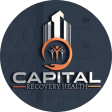The journey of addiction recovery is multifaceted, requiring a delicate balance of psychological support, social reintegration, and economic stability. At the heart of this process, career planning emerges as a pivotal component, offering a structured pathway to rebuild one’s life. It provides individuals in recovery with not just employment opportunities, but a renewed sense of purpose. By focusing on vocational training and skill development, individuals can achieve a sustainable lifestyle change. The question remains: how exactly does career planning intertwine with the recovery process to foster long-term success and personal fulfillment?
Understanding Addiction and Recovery
Maneuvering through the complexities of addiction and recovery can feel overwhelming, yet understanding these concepts is essential in the journey toward healing. Substance dependence is a multifaceted condition, often characterized by an individual’s compulsive need to seek and use substances despite adverse consequences. Recognizing this dependence as a chronic, relapsing disorder is a vital first step in addressing it. Effective recovery strategies often include therapy, support groups, and personalized treatment plans that cater to the individual’s unique needs. By focusing on the holistic well-being of the person, recovery becomes a sustainable and empowering process. As individuals initiate on this transformative path, understanding the nuances of addiction and recovery can provide a solid foundation for building a healthier, more fulfilling life.
The Role of Career Planning
While understanding addiction and recovery lays the groundwork for personal transformation, integrating career planning into the recovery process can greatly enhance one’s journey to sobriety. Establishing clear career goals provides individuals with a renewed sense of purpose and direction, vital elements in maintaining motivation during recovery. By focusing on career development, individuals can channel their energy towards building a future that aligns with their aspirations and values. Moreover, dedicated career planning can aid in creating a structured routine, reducing the likelihood of relapse by minimizing idle time and promoting productivity. Support from career counselors and recovery specialists can further assist in setting realistic career goals and overcoming potential barriers. Through these collaborative efforts, individuals can rebuild their lives, establishing a stable foundation that supports long-term recovery and personal growth.
Building New Skills
Embracing the journey of addiction recovery often requires individuals to build new skills, which can serve as a transformative and empowering experience. Developing a robust set of skills is fundamental not only for fostering personal growth but also for establishing a sustainable path towards long-term sobriety. Skill development in areas such as communication, time management, and problem-solving can enhance self-esteem and provide a sense of accomplishment, essential for those recovering from addiction. Moreover, learning new skills can open doors to new career opportunities, enabling individuals to re-enter the workforce with confidence and purpose. Career planning that includes skill development not only supports recovery but also contributes to a more fulfilling and balanced life, underscoring the significant role of personal growth in addiction recovery.
Success Stories and Inspirations
Often, the journey to recovery from addiction is illuminated by inspiring achievements that offer hope and motivation to those contemplating an alcohol or drug abuse program. Triumph tales abound of individuals who have transformed their lives through dedication and perseverance, leveraging career planning as a crucial component of their recovery process. One notable triumph tale is of a woman who, after years of struggling with substance abuse, found her calling in social work. Through a thorough career planning program, she gained the necessary skills and qualifications to help others facing similar challenges. Another inspiring narrative involves a young man who, through career counseling, discovered a passion for culinary arts. This newfound focus facilitated his recovery by providing a meaningful outlet and a supportive community.

Final Thoughts
Career planning emerges as a vital component in the journey of addiction recovery, providing a structured pathway toward stability and personal fulfillment. By fostering the development of new skills and establishing clear goals, individuals in recovery can effectively rebuild their lives, reducing the risk of relapse. The transformative achievements of those who have embraced career planning underscore its profound impact, highlighting the potential for renewed purpose and direction in overcoming the challenges of addiction. At Capital Recovery Health, we’re dedicated to helping you overcome the challenges of substance use and build a foundation for lasting strength and renewal. Our experienced team creates personalized, evidence-based treatment plans tailored to your unique recovery journey. Get the compassionate support you deserve by contacting us. Stay connected with us on Facebook for valuable insights, resources, and inspiring stories of hope.
Frequently Asked Questions
What Are the Signs That I Might Need Professional Help for Addiction?
Identifying the need for professional help with addiction involves recognizing warning signs such as diminished work performance, strained relationships, or neglect of responsibilities. The emotional impact of substance use, including anxiety or depression, often signals a need for intervention. Effective coping strategies and support systems are essential, and self-assessment tools can aid in evaluating your situation. Professional resources provide tailored guidance, assisting individuals in maneuvering the complexities of addiction recovery with empathy and expertise.
How Long Does It Typically Take to See Progress in Recovery?
The duration to observe progress in recovery varies greatly among individuals, contingent on numerous factors such as the severity of addiction and personal circumstances. Recovery milestones, however, often include initial detoxification, followed by gradual personal growth in mental, emotional, and physical health. While some may notice positive changes within weeks, others might take several months. It is important to approach recovery with patience and support, acknowledging that each step forward is significant.
Can Career Planning Help if I’m Unsure About My Future Goals?
Career planning can be a valuable tool for individuals uncertain about their future goals, as it fosters goal exploration and a clearer future vision. Engaging in career planning provides a structured framework to assess personal strengths and interests, facilitating the discovery of suitable career paths. Additionally, it offers a supportive environment to set achievable milestones, thereby enhancing motivation and confidence in pursuing a fulfilling professional journey, even amidst uncertainty.
Are There Any Specific Careers That Are Beneficial for Those in Recovery?
Certain careers can be particularly beneficial for individuals in recovery due to their inherently supportive environments and focus on skills development. Roles in healthcare, counseling, and social work are often conducive to recovery, offering meaningful interactions and opportunities to help others. Additionally, careers in trades, where skill acquisition and mastery are emphasized, can provide a sense of accomplishment. Importantly, any role that fosters personal growth and understanding can be advantageous for those in recovery.
How Do I Manage Setbacks or Relapses During My Recovery Journey?
Managing setbacks and relapses during recovery requires a strategic approach. Begin by identifying relapse triggers to preemptively address situations that may lead to substance use. Develop robust setback strategies, such as seeking support from healthcare professionals, attending support groups, and employing stress-reduction techniques. Prioritize maintaining a structured routine and setting realistic goals.

